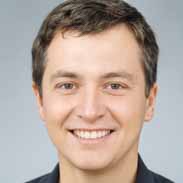APUSH- Chapter 15 Terms – Flashcards
Unlock all answers in this set
Unlock answersquestion
Deism
answer
A natural religion that developed in the Age of Enlightenment that embraced the belief that while God does exist and did create the world, he refrains from any sort of interference or participation in it
question
Unitarianism
answer
Believed that God only existed in one person, rejecting the Trinity. They denied the deity of Jesus. Christian doctrine that stresses individual freedom of belief and essential human goodness. Pictured God as a loving Father rather than a stern Creator.
question
Camp Meeting
answer
during the second great awakening, religious revivals on the frontier took the form of camp meetings at which hundred or even thousands of people of various denominations met to hear speeches on repentance and to sing hymns.
question
Peter Cartwright
answer
Best known of the Methodist "circuit riders" (traveling frontier preachers). Sinewy servant of the Lord ranged for half-century from Tennessee to Illinois, calling upon sinners to repent.
question
Charles G. Finney
answer
.Evangelist preacher who led massive revivals in Rochester and NYC. Encouraged women to pray aloud in public, denounced alcohol and slavery, and supported feminization of church membership and theology
question
Oberlin College
answer
Founded by pious New Englanders in Ohio's Western Reserve, from the start Oberlin radiated a spirit of reform predicated on faith; it was the first college in America to admit either women or blacks, and it was a hotbed of antislavery doctrine.
question
Burned-Over District
answer
Area of western New York strongly influenced by the revivalist fervor of the Second Great Awakening; Disciples of Christ and Mormons are among the many sects that trace their roots to the phenomenon.
question
Millerites
answer
believed that christ would return on October 22, 1842 also known as Adventists
question
Noah Webster
answer
United States lexicographer (1758-1843), American writer who wrote textbooks to help the advancement of education. He also wrote a dictionary which helped standardize the American language.
question
William H. McGuffrey
answer
teacher/preacher introduced ideas regarding morality, patriotism, idealism
question
Emma Willard
answer
1821 founded Troy Female Seminary in New York which was a model for girls' schools everywhere
question
Mary Lyon
answer
in 1837 founded the first college for women, Mount Holyoke Female Seminary
question
Dorothea Dix
answer
..., A reformer and pioneer in the movement to treat the insane as mentally ill, beginning in the 1820's, she was responsible for improving conditions in jails, poorhouses and insane asylums throughout the U.S. and Canada. She succeeded in persuading many states to assume responsibility for the care of the mentally ill. She served as the Superintendant of Nurses for the Union Army during the Civil War.
question
Ten nights in a barroom and what i saw there
answer
the most popular anti-alcohol tract of the mid-1800s was T.S. Arthur's melodramatic novel describing how a once happy village was ruined by Sam Slade's tavern. This novel was the second leading seller of the 1850s, second only to Uncle Tom's Cabin. Promoted temperance
question
Neal Dow
answer
Father of Prohibition; he made a law in Maine that would disallow lethal alcohol to be sold.
question
Cult of Domesticity
answer
the ideal woman was seen as a tender, self-sacrificing caregiver who provided a nest for her children and a peaceful refuge for her husband, social customs that restricted women to caring for the house
question
Seneca Falls Convention
answer
(1848) the first national women's rights convention at which the Declaration of Sentiments was written
question
Hudson River School
answer
Founded by Thomas Cole, first native school of landscape painting in the U.S.; attracted artists rebelling against the neoclassical tradition, painted many scenes of New York's Hudson River
question
Walt Whitman
answer
American poet and transcendentalist who was famous for his beliefs on nature, as demonstrated in his book, Leaves of Grass.
question
Emily Dickinson
answer
a female poet, she explored universal themes of nature, love, death, and immortality. During her lifetime she refused to publish any of her works but post-mortem around 2,000 of them were printed



